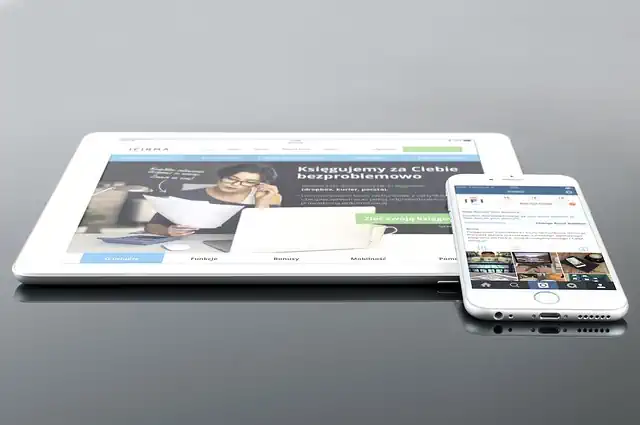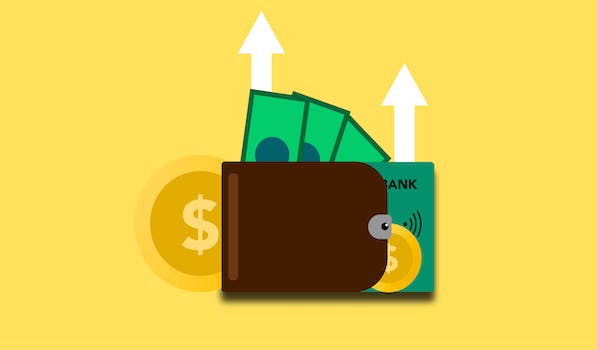How To Manage Money Better And Save
5 Simple Ways to Cut Expenses and Save Money
Managing money can be a daunting task, especially when it comes to saving. However, with a few simple changes to your spending habits, you can cut expenses and save money. Here are five simple ways to manage your money better and save.
1. Create a Budget
The first step to managing your money better is to create a budget. A budget is a plan that outlines your income and expenses. It helps you to track your spending and identify areas where you can cut back. To create a budget, start by listing all your sources of income and your monthly expenses. Be sure to include everything from rent or mortgage payments to groceries and entertainment. Once you have a clear picture of your finances, you can identify areas where you can cut back and save money.
2. Cut Back on Eating Out
Eating out can be expensive, especially if you do it frequently. One way to cut expenses and save money is to cook at home more often. Not only is it cheaper, but it’s also healthier. You can save even more money by planning your meals in advance and buying groceries in bulk. This way, you can take advantage of sales and discounts and avoid impulse purchases.
3. Reduce Your Energy Consumption
Another way to cut expenses and save money is to reduce your energy consumption. This can be done by turning off lights and electronics when they’re not in use, using energy-efficient light bulbs, and adjusting your thermostat. You can also save money on your energy bill by using appliances like your dishwasher and washing machine during off-peak hours.
4. Shop Smart
Shopping smart is another way to cut expenses and save money. This means taking advantage of sales and discounts, buying generic brands instead of name brands, and avoiding impulse purchases. You can also save money by shopping online, where prices are often lower than in brick-and-mortar stores. Just be sure to compare prices and read reviews before making a purchase.
5. Use Cash Instead of Credit
Finally, using cash instead of credit can help you manage your money better and save. When you use cash, you’re more aware of how much you’re spending and less likely to overspend. You can also avoid interest charges and fees associated with credit cards. If you do use credit, be sure to pay off your balance in full each month to avoid accruing interest charges.
In conclusion, managing your money better and saving doesn’t have to be difficult. By creating a budget, cutting back on eating out, reducing your energy consumption, shopping smart, and using cash instead of credit, you can cut expenses and save money. Remember, every little bit counts, so start small and work your way up. With a little effort and discipline, you can achieve your financial goals and live a more financially secure life.
Investing 101: How to Make Your Money Work for You
Managing money can be a daunting task, but it doesn’t have to be. With a few simple steps, you can take control of your finances and start saving for the future. One of the best ways to do this is by investing your money wisely. Investing can seem intimidating, but it’s actually quite simple once you understand the basics.
The first step in investing is to determine your financial goals. Do you want to save for retirement, buy a house, or pay off debt? Once you know what you’re working towards, you can start to develop a plan. This plan should include a budget, a savings plan, and an investment strategy.
The next step is to educate yourself about the different types of investments available. There are many options, including stocks, bonds, mutual funds, and real estate. Each type of investment has its own risks and rewards, so it’s important to do your research and choose the ones that are right for you.
One of the most important things to remember when investing is to diversify your portfolio. This means spreading your money across different types of investments to reduce your risk. For example, if you invest all of your money in one stock and that stock performs poorly, you could lose a significant amount of money. However, if you spread your money across several stocks, bonds, and mutual funds, you’ll be less vulnerable to market fluctuations.
Another key to successful investing is to be patient. Investing is a long-term strategy, and it’s important to stay committed to your plan even when the market is volatile. Don’t panic and sell your investments when the market dips – this can actually hurt your returns in the long run. Instead, stay the course and trust that your investments will grow over time.
Finally, it’s important to regularly review and adjust your investment strategy as needed. Your financial goals may change over time, and your investment strategy should reflect that. For example, if you’re getting closer to retirement, you may want to shift your investments to more conservative options to protect your savings.
In addition to investing, there are other steps you can take to manage your money better and save for the future. One of the most important is to create a budget and stick to it. This means tracking your income and expenses and making sure you’re living within your means. It also means setting aside money for savings and investments each month.
Another way to save money is to reduce your expenses. This could mean cutting back on unnecessary purchases, negotiating bills, or finding ways to save on everyday expenses like groceries and utilities. Small changes can add up over time and help you reach your financial goals faster.
Finally, it’s important to have an emergency fund in place. This is a savings account that you can tap into in case of unexpected expenses like car repairs or medical bills. Ideally, your emergency fund should have enough money to cover three to six months of living expenses.
In conclusion, managing money and saving for the future can seem overwhelming, but it doesn’t have to be. By investing wisely, creating a budget, reducing expenses, and building an emergency fund, you can take control of your finances and achieve your financial goals. Remember to be patient, stay committed to your plan, and regularly review and adjust your investment strategy as needed. With these steps in place, you’ll be on your way to a brighter financial future.
The Importance of Emergency Funds and How to Build One
Managing money can be a daunting task, especially when it comes to saving. However, it is essential to have a plan in place to ensure financial stability and security. One of the most crucial aspects of financial planning is having an emergency fund. In this article, we will discuss the importance of emergency funds and how to build one.
An emergency fund is a sum of money set aside to cover unexpected expenses such as medical bills, car repairs, or job loss. It is crucial to have an emergency fund because unexpected expenses can arise at any time, and without a safety net, it can be challenging to cover these costs. Having an emergency fund can help prevent financial stress and provide peace of mind.
The first step in building an emergency fund is to determine how much money you need to save. A general rule of thumb is to save three to six months’ worth of living expenses. This amount may vary depending on your individual circumstances, such as job stability and family size. It is essential to be realistic about your expenses and savings goals.
Once you have determined how much money you need to save, the next step is to create a budget. A budget will help you track your expenses and identify areas where you can cut back to save money. It is essential to be disciplined and stick to your budget to ensure that you are saving enough money each month.
Another way to build an emergency fund is to automate your savings. Set up a direct deposit from your paycheck into a separate savings account designated for your emergency fund. This will ensure that you are consistently saving money each month without having to think about it.
It is also important to keep your emergency fund separate from your regular checking account. This will help prevent the temptation to dip into your savings for non-emergency expenses. Consider opening a high-yield savings account, which will earn you more interest on your savings.
In addition to building an emergency fund, it is essential to have a plan in place for unexpected expenses. This may include having insurance coverage for medical bills or car repairs. It is also important to have a plan for job loss, such as having a resume and networking contacts ready in case of unemployment.
In conclusion, having an emergency fund is crucial for financial stability and security. It is important to determine how much money you need to save, create a budget, automate your savings, and keep your emergency fund separate from your regular checking account. Having a plan in place for unexpected expenses can also help prevent financial stress. By following these steps, you can build an emergency fund and manage your money better.
Debt Management Strategies: Paying Off Debt and Staying Debt-Free
Managing money can be a daunting task, especially when you have debt to pay off. However, with the right strategies, you can pay off your debt and stay debt-free. Here are some tips on how to manage your money better and save.
Firstly, it’s important to create a budget. A budget helps you keep track of your income and expenses, and it allows you to see where your money is going. Start by listing all your sources of income and your monthly expenses. This includes rent/mortgage, utilities, groceries, transportation, and any other bills you have. Once you have a clear picture of your finances, you can identify areas where you can cut back on expenses.
Next, prioritize your debt payments. If you have multiple debts, focus on paying off the one with the highest interest rate first. This will save you money in the long run. Make sure to make at least the minimum payment on all your debts to avoid late fees and penalties. If you have trouble keeping track of your payments, consider consolidating your debts into one monthly payment.
Another strategy to manage your debt is to negotiate with your creditors. If you’re struggling to make your payments, reach out to your creditors and explain your situation. They may be willing to work with you to come up with a payment plan that fits your budget. This can help you avoid defaulting on your debts and damaging your credit score.
In addition to paying off your debt, it’s important to stay debt-free. One way to do this is to avoid taking on new debt. This means resisting the urge to use credit cards for unnecessary purchases. If you do use credit cards, make sure to pay off the balance in full each month to avoid interest charges.
Another way to stay debt-free is to build an emergency fund. This is a savings account that you can use in case of unexpected expenses, such as car repairs or medical bills. Aim to save at least three to six months’ worth of living expenses in your emergency fund. This will give you peace of mind knowing that you have a financial safety net.
Finally, it’s important to track your progress. Keep track of your debt payments and your savings goals. This will help you stay motivated and see the progress you’re making. Celebrate your milestones along the way, such as paying off a credit card or reaching a savings goal. This will help you stay on track and continue to manage your money better.
In conclusion, managing your money and paying off debt can be challenging, but it’s not impossible. By creating a budget, prioritizing your debt payments, negotiating with your creditors, avoiding new debt, building an emergency fund, and tracking your progress, you can manage your money better and save. Remember, it’s important to stay motivated and celebrate your milestones along the way. With the right strategies, you can become debt-free and achieve your financial goals.






